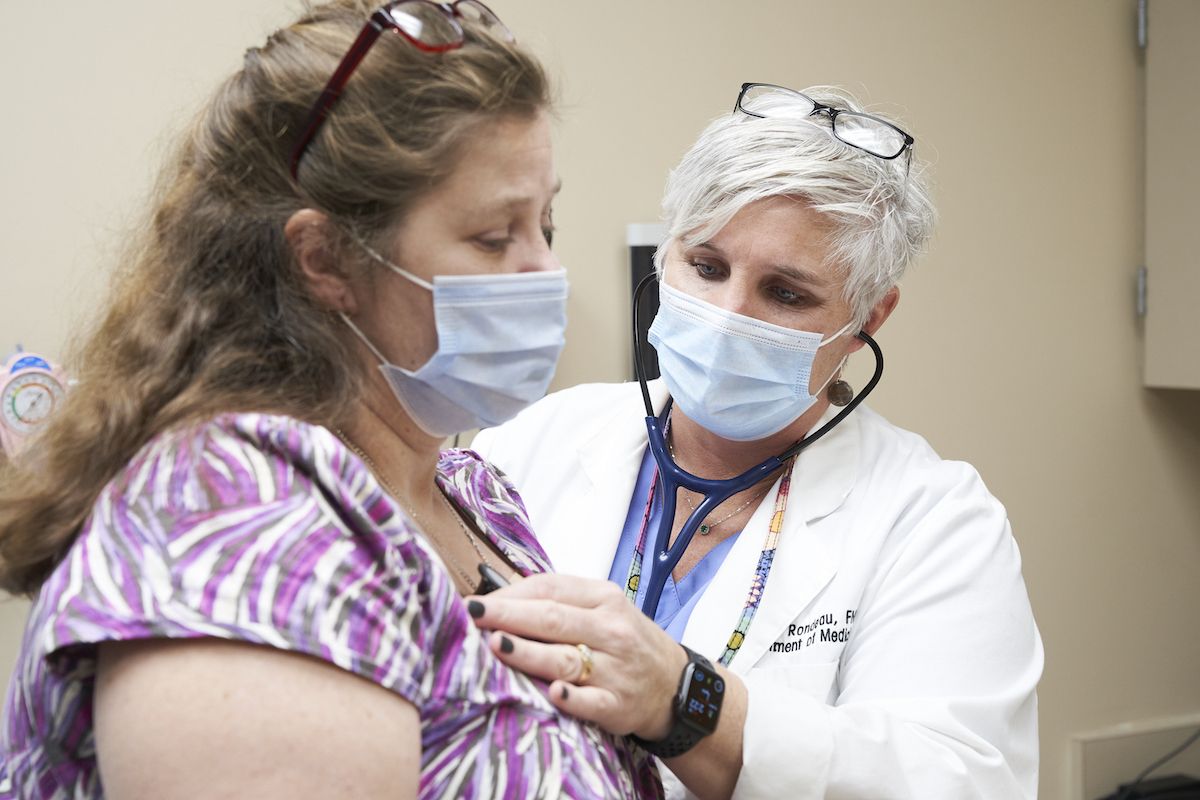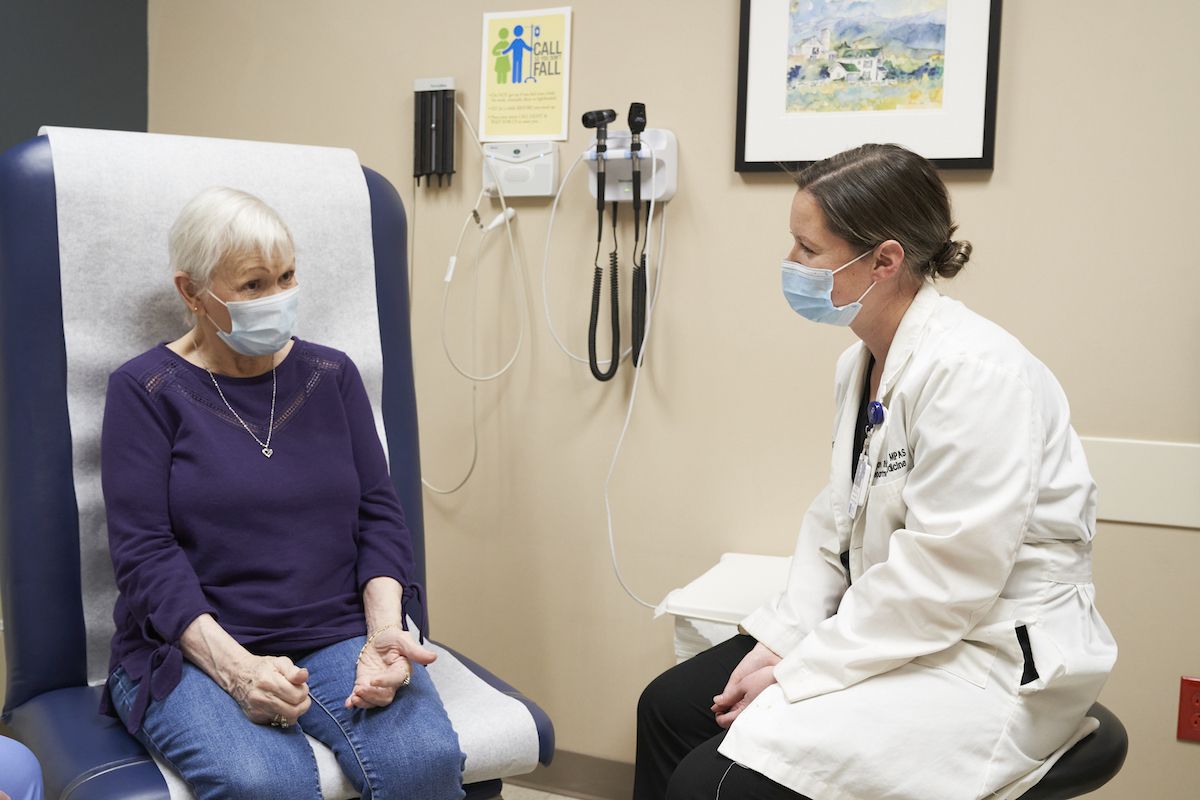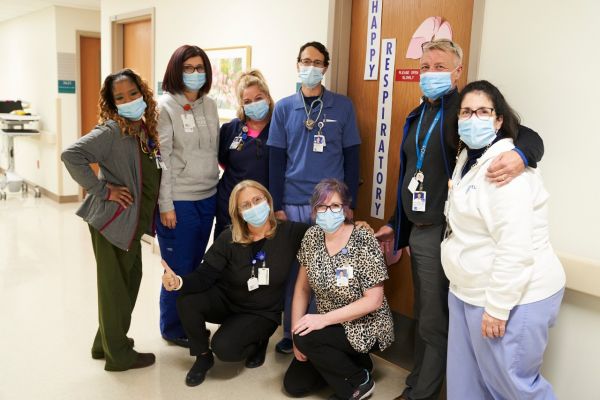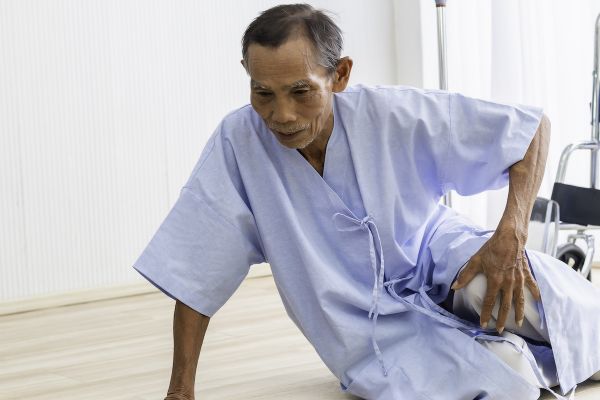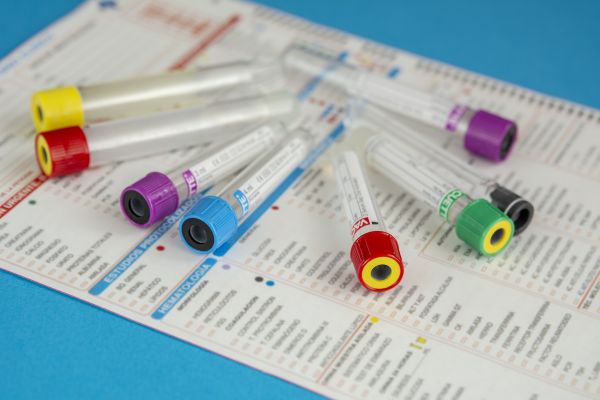If you are a Roswell Park patient, advanced practice providers will almost certainly deliver part of your care. This group of professionals includes nurse practitioners (NPs), clinical nurse specialists (CNSs), certified registered nurse anesthetists (CRNAs) and physician assistants (PAs).
All advanced practice providers must be licensed by a state regulatory board in order to practice in their respective states. The scope of care they are authorized to provide is different for each group and also varies widely from state to state.
Here’s some specific information about their training and the kinds of things they are qualified to do:
Nurse practitioner — NP
Training/Education
To become certified and registered to practice as a nurse practitioner in New York State, you must:
- Graduate from an NP education program acceptable to the New York State Education Department (NYSED) or be certified as an NP by a national certifying organization acceptable to NYSED
- Complete pharmacology course work acceptable to NYSED
- Apply for nurse practitioner certification with NYSED
Most NP programs are at the master’s or doctoral level. Applicants apply to specific specialty areas and practice in those areas when they have successfully completed their program. Current specialty areas include Adult Health, Family Health, Gerontology, Neonatology, Obstetrics, Oncology, Pediatrics, Perinatology, Psychiatry, School Health, Women’s Health, Holistic Care and Palliative Care.
Nurse practitioners are authorized to…
- Independently manage the medical and nursing care provided to their patients within their specialty area
- Diagnose illness and physical conditions
- Prescribe and administer therapeutic and corrective treatments within their certified specialty area
- Educate patients about their health
NPs are educated/trained in accordance with nursing care models (see below for more information). They take a wellness approach that considers the person as a whole.
How NPs practice in New York State
There are two ways NPs can practice in New York State. The first is to have a written agreement with a physician who practices in the same specialty as the NP. Since 2015, NPs who have 3,600 hours of clinical experience no longer need a written agreement. They can enter a collaborative relationship with one or more physicians or licensed healthcare facilities. Under a collaborative relationship, the NP simply stays in communication with one or more physicians who are qualified in the same specialty as the NP. To collaborate with a facility, the NP communicates with a qualified physician who has privileges at that healthcare facility.
Certified registered nurse anesthetist - CRNA
Training/Education
To become certified and registered to practice as a CRNA in New York State, you must:
- Have a valid New York State registered nurse (RN) license
- Complete an accredited CRNA education program
- Pass a national certification examination
In New York State, you must be a licensed RN with a BS degree in nursing and a minimum of 12 months of critical care nursing experience before applying to a nurse anesthesia program. To become highly skilled and educated anesthesia experts, CRNAs earn a Master of Science or Doctor of Nursing Practice degree. Once they earn the degree, they must pass the American Association of Nurse Anesthetists (AANA) Certified Registered Nurse Anesthetist exam. To maintain their certification, CRNAs must complete 100 AANA-approved continuing education credits every four years.
How CRNAs practice in New York State
CRNAs have a high degree of independence and provide patient-centered, holistic pain management and anesthesia care in every practice setting. CRNAs are the sole anesthesia providers in nearly all rural hospitals, and the main provider of anesthesia to those serving in the U.S. Armed Forces.
Clinical nurse specialist — CNS
Training/Education
In New York State, a clinical nurse specialist is a registered professional nurse who has completed a master’s or doctoral degree in a specialty such as adult health or pediatrics, and is certified by the New York State Education Department.
How CNSs practice in New York State
Clinical nurse specialists provide expert, highly skilled nursing services to benefit patients with complex health care needs. They do not make diagnoses or prescribe/order treatments or tests.
Physician assistant – PA
Training/Education
To be licensed as a physician assistant in New York State, you must complete a New York State-approved program, which is usually a master’s-level program, and take a national certifying exam. Physician assistants are registered as licensed providers in New York State and must maintain their certification by completing 100 hours of continuing medical education every two years. They also must recertify every 10 years by taking a national exam very similar to their original certifying board exams. This encourages PAs to remain up to date on the most current information.
How PAs practice in New York State
A physician assistant is considered a dependent practitioner. A PA provides health care under the supervision of a licensed physician, within the scope of the physician’s practice, as a cooperative partnership. If the collaborating physician is in medical oncology, then the PA practices in that field as well. PAs can practice in a range of specialties because they receive training in medicine, surgery and many other concentrations. PAs are educated/trained based on the medical model, which is similar to a physician's focus of training. (See below to learn more.)
Physician assistants perform many of the same medical services provided by their supervising physician. For example, they can:
- Manage the medical and nursing care provided to their patients in collaboration with their supervising physician
- Diagnose and treat illness and physical conditions
- Prescribe and administer therapeutic and corrective treatments within their certified specialty area
- Educate patients about their health
Physician assistants also receive training to perform procedures and are able to practice within the same scope as their collaborative physician’s practice.
Nursing theories and medical models
As noted previously, NPs are trained and educated under nursing models and PAs under the medical model. What does that mean?
The medical model is evidence-based and looks at the cause (pathophysiology) and effect of disease. This scientific approach is used in research and has led to many medical advances.
In contrast, most nursing theories and models focus on treating the person as a whole, looking at other factors influencing the patient’s health and care. These theories promote overall wellness and disease prevention.
While these models may seem quite different, they actually complement each other. Both nursing and medical practitioners often use pieces of both models as they grow in their practice.
Regardless of training and title, advanced practice nurses and physician assistants are essential members of your clinical team at Roswell Park. Here they perform similar roles, and they all have extensive training, including knowledge of not only how to treat your disease but also how to care for all the needs that may arise during your course of treatment.
In keeping with Roswell Park’s multidisciplinary approach to care, our advanced practice providers work closely with physical and occupational therapists, social workers, nurses, dietitians and many other professionals who may be part of your team. Their work is essential to providing you with the highest level of care.
Never miss another Cancer Talk blog!
Sign up to receive our monthly Cancer Talk e-newsletter.
Sign up!